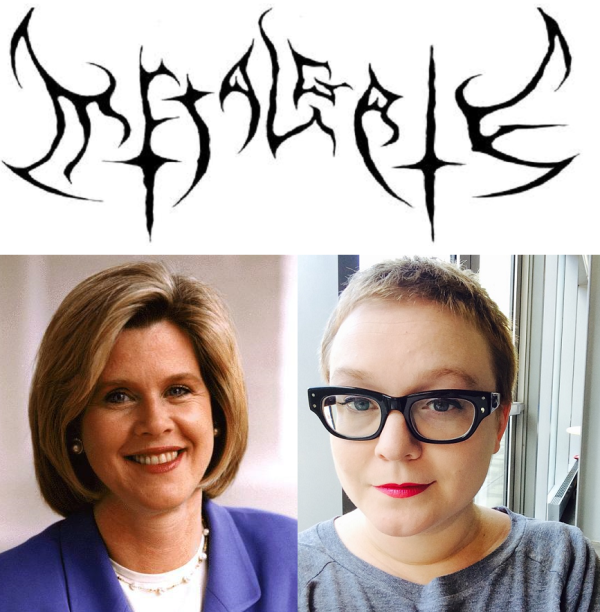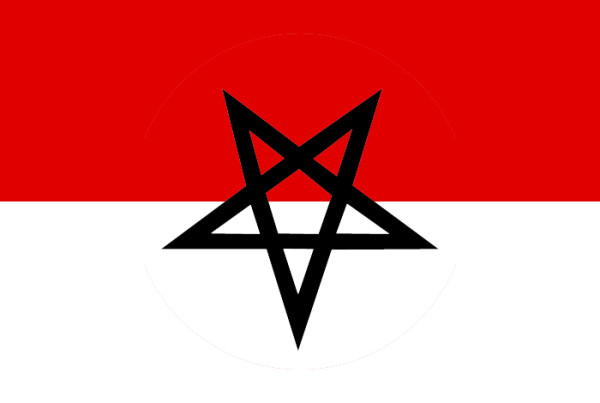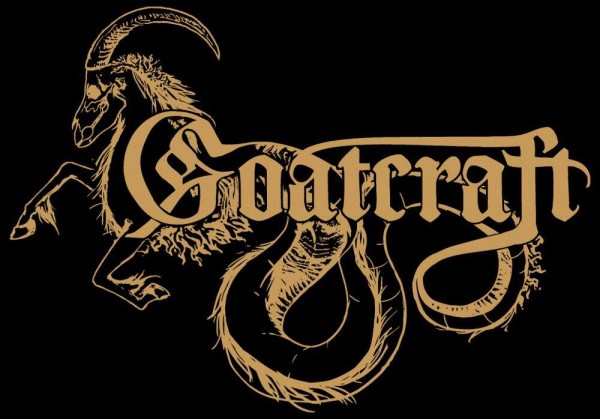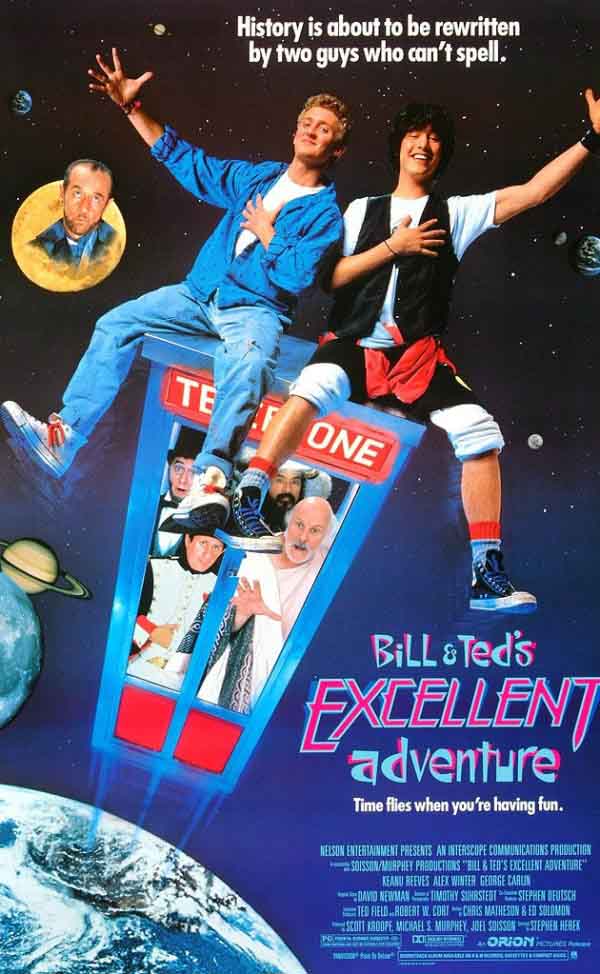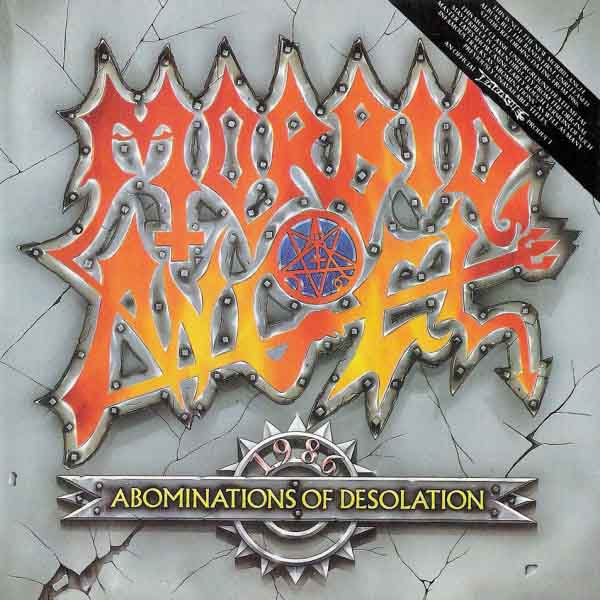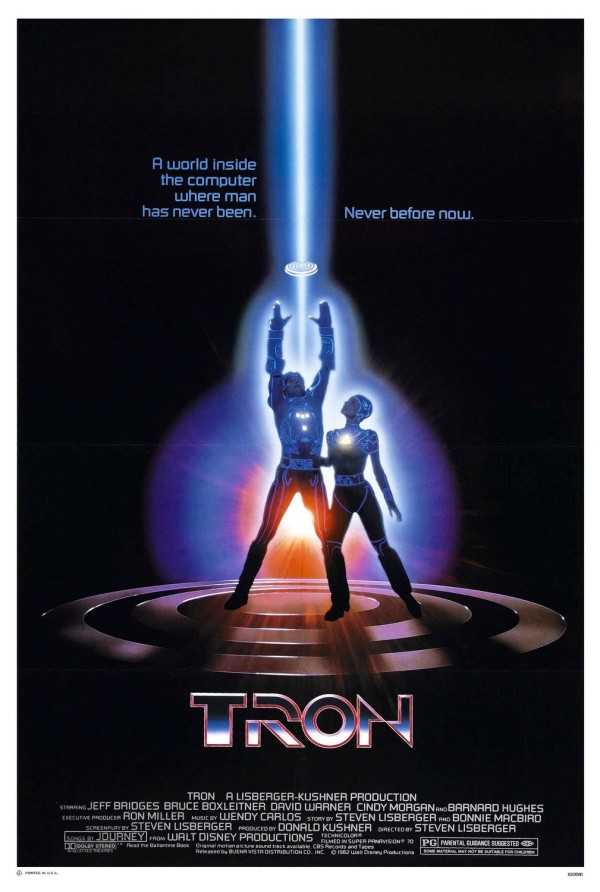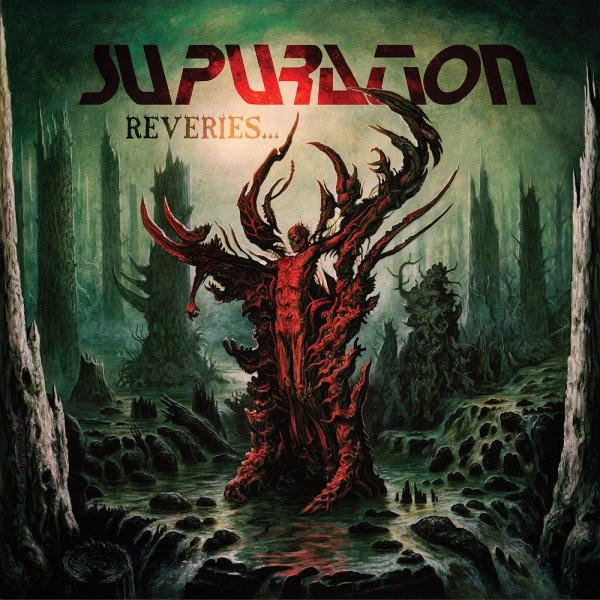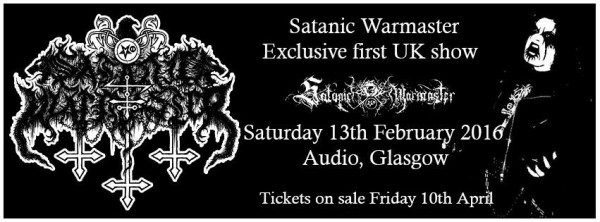The second edition of the #metalgate podcast has arrived! This one features a more acrimonious look at the split between those who want a single moral right way for all of us to behave, and those who want a more chaotic and naturalistic “do your own” thing. Is there a middle ground? Will there ever be understanding between the two? Only you can decide! Tune in for metalgate podcast issue two below.
37 CommentsHow to analyze music
Recent posting of an interesting article about transcendent realization in metal provoked a number of confused comments, none of which addressed the substance of the article. The objection was to modern metal, which many view as a misbegotten genre, and to secondarily to the bands involved.
As a thought experiment, I thought I might share some thoughts on analysis of metal. You will not find nice easy binaries and “objective” analyses here, more like qualitative assessments in a shifting frame of reference. Mostly these are questions which do not resolve to nice, uniform and balanced answers. They embrace the controversy.
However, you will find that as you look back over the journey — and that is the best metaphor for experiencing music, that of looking into a field of data — you will see that taken as a whole, the details point toward an overall picture. Your job then is to assess that against all other music and place it in context.
I start with these general questions:
- What changes between start and finish?
- What patterns can be found?
- Do these patterns form a language of sorts?
- If so, does it lead to the conclusion?
Art is a communication. Art that extends over time, like novels or music, takes the listener from a starting point to a conclusion. It is not very powerful, usually, to have the precepts equal the conclusion, but sometimes — rarely — a full circle can be revealing, like when one recognizes how utterly futile an idea was when applying it to an experience, and ends up abandoning it. Patterns can consist of any data that is discernibly isolated (relevant to all of its parts) and can often change meaning when repeated. Language uses patterns to build meaning by expressing tokens in context and changing that context to apply more attributes to those tokens. Language leads to a conclusion when internal conflict results in a clear answer as to what has become victorious, been destroyed or a merging of ideas.
These lead to other questions, such as regarding technique:
- Does this technique fit a need, or is the need made to fit the technique?
- Is it evocative of any real-world experience or vivid thoughts?
- Are the values of proportion, balance and purpose applied in this use of the technique?
- Is there another more relevant technique that was not use?
The biggest question here is whether the technique is used for a purpose or not. A band that merely makes a list of all techniques, assigns them to songs and then barfs out a song using them will not only be boring, but will miss an opportunity to communicate something more than the technique — including composition — itself. The worst problem here is the “wallpaper effect” where the band does not vary the intensity within each song, creating a listening experience like listening to a faucet on full blast.
I also suggest the following for seeing past aesthetic:
- If the lyrics were absent, how well would this piece stand up?
- If I played this on a kazoo or acoustic guitar, would it still sound as powerful?
- Is there depth to this imagery, or is the song a framing for the presentation of an image?
I find it useful to have a smaller CD player or computer in another room with not-so-excellent speakers. You can fire up the music on one of those and listen from a room or two away, which creates a sort of ad hoc filter that removes the value of production. You end up hearing root notes and rhythm the most, but also lose many of the flourishes that hide the actual music.
Then you should ask of its artistic relevance:
- What does this piece of music express?
- Does this address something relevant to life itself?
- What have I learned or experienced through this piece?
These questions explore significance. That exists on both a musical and thematic level, with the best music having the two operating at once toward the same ends. Music that is relevant expresses something we know of in life, and finds a way to make it beautiful and create transcendence from it. Clarity, or truth about reality, can itself have a transcendent effect in that it clears aside confusion and opens up a pathway to future creation. Good art creates a world that you want to step into and help fight it out so that the best, the beautiful, the good and the interesting prevails over Big Macs and Cheetos.
And then, finally, your duty to the reader:
- How many times could I listen to this without getting bored?
- In what situations would I discuss with others what this conveyed?
- How does this expand the metal lexicon of technique and ideas?
If you are writing as a reviewer, your readers do not have infinite time or money. They can purchase a few albums but are going to rely on these for enjoyment and learning over the course of the coming years. Remember your Bell Curve: most albums are in the middle, with some outright turds to the left and a few real standouts to the right. Your job is to pick the standouts because people can love these for years, and/or some of the high middle albums. Do not be afraid to be vicious. This is the money of normal people being spent on this music, and if they end up dissatisfied, it creates more landfill and causes them to despair on quality. Whatever is rewarded in the marketplace predominates, meaning you get more of it, so any sane person will be strict about quality.
With that being said…
Here’s a couple tracks for you to try. The only comments that are worthwhile are analytical ones. If you want to call someone a fag, go to one of the other threads and call me a fag. I got over it long ago and now I just ask for phone numbers or cock pics.
http://www.youtube.com/watch?v=7TShpgcNVKU
28 CommentsTags: analysis, fag, Heavy Metal, music analysis, music reviews
On Goatcraft
Lonegoat of necroclassical band Goatcraft issued the following statement today on, of all topics, Death Metal Underground itself. Read on for some clarification of the oddities of Goatcraft coverage for the past year or so, and the “no Goatcraft rule” implemented some time ago.
Brett Stevens is a controversial man. He’s made more armchair activists angry than anyone else on the internet. Founding the legendary Dark Legions Archive, as well as many other groups/websites/etc, his reviews were unmatched and were of the highest linguistic artistry. He created worlds in his reviews that paralleled the musical subjects better than anyone else who ever wrote about metal.
He’s been around since the nascent stage of the internet to this now populace, SJW Tumblr Tranny modern wankery that resembles dumpster diving more than anything else. It’s only suiting that he swapped to writing movie reviews.
For a while I aided Brett by helping out behind the scenes at Deathmetal.org. I wouldn’t really consider it “helping” as I’ve never been a writer nor cared to be one. Usually my contributions were drunken and juvenile. It was what it was.
In return for my contributions, Brett hosted this domain while I was in between jobs and had no spare money to pay for it. About a month after that we had a falling out over a mutual acquaintance and our stances regarding this person. Goatcraft.net was then nuked. Most of the Goatcraft material was pulled from Deathmetal.org at my request. There’s now a No-Goatcraft rule implemented at Deathmetal.org because of all of this.
About 8 months later Brett gave me the Goatcraft.net domain back.
I’m indifferent to what Deathmetal.org is nowadays. There are some good articles like the recent Abominations of Desolation controversy article, although he should’ve been more specific in the article instead of hiding its intent through multiple layers.
This should clear up any confusion regarding the friction between Deathmetal.org and Goatcraft.
Consider it a generous statement and a fair one, and wonder no more why our Goatcraft reviews went away. It is what it is.
http://www.youtube.com/watch?v=OuCRHBsEKtE
32 CommentsTags: critique, dark ambient, goatcraft, lonegoat, necroclassical, neoclassical
Bill and Ted’s Excellent Adventure (1989)
When future history is written, either on the scraps of a dead civilization or the new frontiers of a restored one, it may include a mention of Generation X as a precipice between old and new. In 1989, waves of thought were already concentrating on the idea Francis Fukuyama would express a few years later, which was that history was pretty much over and a final human form had been found. Now, the thought ran, we only had to figure out the parts of life that were not government or economics.
Bill and Ted’s Excellent Adventure dropped into this fertile climate like a bomb of pleasant discomfiture. Its ostensibly pleasant message resonated with a nation caught in indecision. The 1960s had legitimized every behavior, but lacking the comforting direction of the 1940s, it felt adrift. It was somewhat clear the Cold War was winding down and change would happen soon. It would arrive in a void of purpose that unsettled Americans. We had prosperity, relative peace and working social institutions, but life still echoed with a basic emptiness.
The plot involves two Southern California kids who, coming from unstable families, have decided to chuck everything and be in a hard rock band. Their challenge awaiting them is that, being disengaged from public reality entirely, they are about to fail history and with it, a year of high school, which will lead to their separation and the death of the band. With the help of a visitor from the future (George Carlin) the two set off to explore history in order to learn what school could not teach them.
Science-fiction nerds will note rather cruelly that this movie may have borrowed its basic plot device from a British series of the 1960s, Dr. Who. Where the Doctor ventured in a call box, American time travelers got a phone booth. Otherwise, the devices resemble each other to a great degree. The plot follows a simple course of introducing the dilemma, then a series of essentially short skits involving a mockery of different historical periods, followed by a somewhat complex confrontation between historical characters and the 1989 world and then a pleasant and satisfying conclusion.
It would be a mistake to write this movie off as shallow, however. Bill and Ted are two of the most wounded characters to occupy the screen during the 1980s. Both have shattered family origins, low self-esteem, and are perplexed by a world that seems like commercials projected onto screens behind which people wallow in insecurity, doubt and meaninglessness. As many did during the 1980s, they hide behind idiocy as a way of shielding themselves from expectations. They find adults hard to take seriously because adults are focused on methods and results, but not quality of experience. Bill and Ted delineate themselves as characters by their pursuit of something above what they know as life, starting with actually having purpose, even if they have no idea how to go about it.
They launch into their adventure with a jovial carefree attitude that dramatically contrasts the adults of the day. Where 1980s authority figures are rigid and demanding, Bill and Ted look to the value of a given experience in itself. As they go through history, this makes them able to adapt to many different circumstances from which they borrow historical personages. On being brought to the setting of the movie in San Dimas, CA, these figures interact with modern locals and quickly show themselves to be far more competent than your average citizen of the modern era. This movie makes contemporary people look like blockheads who depend on rules and rigid social order to keep themselves from drifting into oblivion, and quickly show a kinship between Bill, Ted and their historical counterparts: all of them dream not only bigger, but of something better, even when simply pursuing their own pleasures. In contrast to the spraypaint color and fake tans of Southern California, the historical humans are a flash of brightness like lightning.
Most of us will find the ending to this film somewhat cheesy, but there is no way to avoid it with a plot that completes itself with a finite achievement; emotional closure does not occur, so the filmmakers allow us a few moments of comedic absurdity with one exception. Look for psychoanalysis to make an appearance and underline a vital plot point in the final few minutes of the film. As always, this movie shows a clash between Baby Boomers, who grew up in a world with order and assume it still exists, and Bill and Ted — symbols for Generation X — who awoke in a world that made no sense, was vapid and had no sense of its own history.
In undertaking their journey through greatness of the past, Bill and Ted in many ways summarize their own time. It struggled with literal threats like the Wild West, political instability, invasions, religious wars and neurosis, but now returns back to its roots in the Socratic questions about the value in life itself. This alludes to what Fukuyama wrote about, which is the question before humanity: become mere materialists, or rise above? Bill and Ted answer with a resounding Be excellent to each other, a message that resonated with many back at the end of the Cold War in its transformative formula for a quantitative world to improve itself instead of stagnating.
10 CommentsTags: bill and ted, bodacious, excellence, time travel
The controversy over Abominations of Desolation
Back in 1986, one lineup of Morbid Angel recorded what that lineup considers the first Morbid Angel album, Abominations of Desolation, which was later re-released on Earache Records in 1991. But three years later, the band re-recorded most of the songs in a streamlined form and released it as Altars of Madness, which the lineup of the band as was at the time through the present considers to be the first Morbid Angel album.
Avoiding a peek into the controversy and the clash of personalities behind it, metal archaeologists today can look at the musical differences between these two albums. Altars of Madness focuses on a tighter and more streamlined style that too often slips into the type of verse-chorus with bridge that was used extensively on speed metal/death metal hybrids like Seven Churches and Rigor Mortis. This may show the influence of Texas band Necrovore, who established a more aggressive aesthetic but kept song structures closer to the NWOBHM model that speed metal used.
At the same time, other bands were taking a hint from Hellhammer/Celtic Frost and writing songs which had some repeated passages which could be used as verse and chorus, but behind those varied the riffs to give the song a unique structure. This opened up new possibilities that all bands entrenched in the rock ‘n roll “verse, chorus, bridge, solo, repeat” pop song format could not reach. In that new frontier, bands saw new musical and artistic possibilities, and the form of modern death metal began.
The first Morbid Angel album contained many of these aspects, particular in some of the odd structures used on the first track. For the most part however it stuck to good old fashioned pop song format with a few modifications, using the Slayer technique of introductory riffs and some hints from Possessed. This showed a dramatically different side of the band than the extended compositions of Abominations of Desolation which, while many used verse/chorus at their center, were more likely to vary riff form and use solos as a kind of second layer to the rhythm guitars.
Controversy continues to this day regarding which is the “true” Morbid Angel. As strange as it seems, the first recording may be the one that opened up more historical space, although its lesser production and expanded song structures made it less hard-hitting at any instance and thus less “heavy” or “brutal” to the audience, which is why the band wants it to be the first album: it is a better product. For many of us however Abominations of Desolation has long surpassed the first two Morbid Angel albums as the one most frequently listened to because of the depths of its complexity and musical imagination.
http://www.youtube.com/watch?v=L2EAo90fGzE
http://www.youtube.com/watch?v=6mfvSSl9L9M
15 CommentsTags: Abominations of Desolation, Altars of Madness, death metal, History, metal history, morbid angel
Tron (1982)
Before William Gibson and the eventual cinematization of his ideas, The Matrix, but after Shockwave Rider and The Moon is a Harsh Mistress, Tron captured the imagination of the public with a movie that adapted the Star Wars series to take place inside a computer. More of a culmination of ideas and a reduction of them to a tangible form than an entirely new idea on its own, Tron defined the cyberpunk wave of science fiction by laying out the basic ingredients of all of its future drama. The result is a visually compelling movie that compares to Metropolis and Blade Runner for its graceful but imposing artistic representation of its topic.
Set in approximately the same time in which it was filmed, this movie follows the path of a hacker trying to find proof that he wrote a massively successful video game which has been stolen by a 1980s style evil large corporate entity. The only glitch is that the secret exists only within the massive mainframe computer that, like the AIs in The Moon is a Harsh Mistress and Neuromancer, assists that corporate entity… and may partially control it. The mainframe is controlled by a program that resembles the early worms that conquered much of the internet in that it absorbs smaller programs and uses them, zombie-like, as its agents, slowly gaining power as it absorbs more code. In the process of trying to gain entry to the machine, the hacker is captured and digitized by it. Now he must break through its security to escape.
At this point, it becomes necessary to point out that there are two movies in Tron. One is a science fiction story that summarizes much of the thinking about virtual reality from the previous decade, and another is a movie that — look at the logo on the cover — applies the Disney-style Hollywood treatment to make a story dramatic and yet accessible. The two do not completely integrate and the science fiction dominates most of the first two-thirds of the movie, at which point its storyline becomes obvious and Hollywood takes over for the touchdown. The great strength of this movie is that it made visualizations of computer concepts in the way that has always distinguished Disney productions; its most poignant image, perhaps borrowed a little bit from Thomas Pynchon, is of the neon-light modern city and how it resembles a visual representation of computer programs.
Where Pynchon compared the lighted city skyline to circuit boards, Tron makes programs into lighted cityscapes that resemble circuit boards, but represent the interaction of programs, users and data. Gibson took this image further and removed the city from it, making it merely a cool-looking abstract space that overlapped with the city but did not directly represent it. Much as both Pynchon and Gibson were influenced by W.S. Burroughs, in this story the computer realm resembles Interzone, or a place where the symbolic becomes real and yet the real can be manipulated by symbols. If you need that dumbed down to a stupefactive level, go see The Matrix, which is 5,000 times more Hollywood-Disney than Tron and is designed to neutralize the power of these concepts.
In Burroughs, Nietzsche comes to life (from On Truth and Lies in a Non-Moral Sense): words manipulate like program code written right into our brains, and the only solution is to decode the message and compare it to reality, at which point one can escape. The Matrix is like the French Revolution writ large onto the screen, in that some simplistic evil corporation keeps everyone in a state of illusion — much like movies and TV including The Matrix do — by creating a false reality. When they wake up, recognizing that the reality is false is enough, and suddenly everyone comes together and sings kumbaya and celebrates the fact that they are all free now. Sound familiar? Yes, it is the standard movie plot of everything from Revenge of the Nerds to Three Days of the Condor. It also compares somewhat to other movies from the same genre of mood as this one and the same time period, such as Blade Runner and Wargames, each of which involves a man fighting technology for liberation theme.
The interesting science fiction movie within Tron starts at the moment that man is digitized into the machine. Most cyberspace dramas focus on the virtual becoming real, but in this case the real becomes virtual and must find a way to escape from the machine. The movie misses out on what may be the real story, which is how changing data in a machine can change real life, by putting the protagonist Flynn (Jeff Bridges, a spiral cut ham) into the machine. If one bit in your record at the DMV or credit bureau becomes changed, your life will take a radically different turn. By focusing on the escape itself instead, Tron manages to spin itself into an interesting tale where a man must play several video games and win before he can break out into the machine itself, circumvent its security measures and then disable the rogue program that controls it.
This “escape” theme works well but disconnects real from virtual worlds, which makes it difficult to have any central narrative except the liberation of the machine itself, which conveniently also liberates the information Flynn needs. For the first two-thirds of the movie, Tron plays with its ability to visualize video games as if the participant were inside of them, and works out a few basic computer concepts in visual form as well, which was necessary to prepare the mainstream audience to understand the weird gadgets that were only just beginning to penetrate homes. When the Hollywoodization takes over, the final third of the movie becomes more like Star Wars and your typical 1980s adventure movie, which causes a somewhat incoherent sequence to segue into a happy ending.
As a movie from its time period, Tron holds up brilliantly over thirty years later. The graphics still look believable and the basic metaphor of man in machine as a program fighting for survival against assimilation strikes a chord with our own struggle to avoid having our brains taken over by the endless memes, advertising, political promises, slogans and trends that keep our modern world under control. While the ending is both slightly confused, fairly derivative and moronically basic in the way only Hollywood can do, it does not detract from an otherwise intriguing and imaginative film that may be one of the more impressive works of quasi-apocalyptic cinema from that era.
4 CommentsTags: cyberpunk, cyberspace, hacking, jeff bridges, tron
“The Marching Morons,” by Cyril W. Kornbluth
One of our readers pointed out the similiarity between the movie Idiocracy and a short story by Cyril W. Kornbluth named “The Marching Morons” which appeared in Galaxy Science Fiction in April, 1951.
Like Idiocracy, the story involves a man who is put into stasis for centuries and wakes up in a new world where humanity has bred itself into oblivion. The Margaret Sanger style eugenics implications are even clearer in this story than in Idiocracy, told with both wit and compassion. Unlike the movie, this story addresses the question of how technology could persist, and comes up with the Nietzschean idea of an upper caste of intelligent people who have ended up enslaved to the masses of fools.
The story falls into the style which is convenient to call “honest” when we in fact mean realistic, with some aggression behind it in the telling of an important story that is mostly forgotten because of its political inconvenience. For Kornbluth, who was Jewish, to explore anything tinged with eugenics in the years after WWII was not only personally brave but ran the risk of great condemnation. Perhaps he was a victim of political correctness because it seems this story should have wider reach.
“The Marching Morons” is written in the older style of science fiction that readers of Ray Bradbury may be familiar with, which is not so much self-consciously “literary” content embedded in mass market writing but a compact, vivid style in which every detail is important but the big picture is not lost in the details. Kornbluth writes with what we might call passion but is more appropriately termed “urgency” in that this story takes place in a desperate time, and was written in a desperate time.
While the presence of this story in the heritage of Idiocracy seems obvious, it is also important to point to an earlier work which it would have been hard for any science fiction fan to miss: The Time Machine, by H.G. Wells. In this book, a Victorian scientist travels to the future. He finds the planet is now divided into two groups: the Morlocks, brutal and crude creatures that fear the light and control the planet from its surface, and Eloi, light and graceful creatures of intelligence which live below the surface in menial circumstances.
As the protagonist explores, he discovers that the Morlocks have descended from the working classes of his time and have through evolutionary pressures become essentially Orcs, thoughtless and violent but obsessive. They live by feeding on the Eloi, to whom Darwin has not been kind because when intelligence is no longer needed for survival, it becomes a burden and the thoughtless and violent dominate it.
Apparently Wells was influenced by E. Ray Lankester’s book Degeneration: A Chapter in Darwinism (1880) in which the author sets forth the idea that if a species gains a constant food supply, evolution pushes toward a suppression of form in a kind of marginal profit obtained by removing expensive features that are no longer necessary.
It may also serve as an answer to Edward Bulwer-Lytton’s The Coming Race, in which he posits an underground species of angelic human-like creatures known as Vril-ya will take over earth with superior intelligence. Much as Orwell answered Huxley, Wells answered Bulwer-Lytton, suggesting that instead of the utopian vision he portrays a Lankesterian degeneration of humanity lurked in the future, which is the theme held in common with both Idiocracy and “The Marching Morons.”
13 CommentsTags: degeneration, e. ray lankester, edward bulwer-lytton, eugenics, h.g. wells, idiocracy, science fiction
Supuration releases “Suffocate Through Asphyxia” from Reveries of a Bloated Cadaver
Back in the early 1990s, Supuration grew from a gore-oriented grindcore band into a death metal band, and then infused the mix with brainy indie/alternative rock of a progressive nature, carrying forward all three influences in varying degrees of balance.
Two decades later, the band plans to release Reveries of a Bloated Cadaver, a modern recording and high-value re-envisioning of the earlier songs with more technical playing, better production and improved cover art. To tease the fans, Supuration released a video for “Suffocate Through Asphyxia” that shows the direction this album will take.
Interestingly, the band preserve the underground metal focus of this material and take it in the proficient but still intensely violent and alienated direction that bands like Autopsy and Entombed embarked upon toward the mid-1990s. Improved playing and more adept tempo changes distinguish the original material of these songs, which appears somewhat reorganized to present itself more distinctively, and place it into a fully modern death metal sound.
It will be interesting to see what they do with other tracks that had more of a grindcore or alternative rock orientation back in the day. Supuration was the original alternative rock/metal crossover, but was ignored by the media because it retained its metal-ness instead of making metal-flavored Fugazi clones like the recent spate of media darlings. Maybe the band will reclaim its position in history with this upcoming release.
6 CommentsTags: alternative metal, death metal, Heavy Metal, progressive metal, supuration
Satanic Warmaster show in Glasgow draws racism complaints
In Glasgow, Scotland, UK a Satanic Warmaster show is under assault from local SJWs who are complaining about political content to Satanic Warmaster’s music or image. The promoter issued the following statement:
It has came to our attention that already after 3 hours of announcing the show people have been emailing us and the venue about the band being racist & to why is the show happening etc.
Let me get this straight for you. The band are not racist. They have stated it SO many times over the years and many of you still put them in that category, the band also posted a chart of their Lyrical Content which found not to have any Racism involved. This is a BLACK METAL show. Not a political protest. If you want to debate over racist nonsense please see yourself down to Westminster and debate with Nigel Farage or Britains First.
If anyone has any issues please email me. Just don’t ruin the show for folk who want to see the band.
There are many more reasons for boycotting a Satanic Warmaster show, but half-baked notions of what is politically acceptable to say serve as an instrument not only of totalitarianism, but opposition to truth. You wouldn’t boycott them if what they were saying was totally and obviously wrong, so your boycott says that they are at least partially correct. The comedy of media and hipsters trying to censor metal continues.
36 CommentsTags: metalgate, satanic warmaster, sjws
Interview with MetalGate Band founder Scott Vogler
The anti-censorship movement known as #metalgate has become a permanent and ongoing event. Like the social justice worker (SJW) antics it combats, it is both activism and activity for those looking to have fun and bash back the insanity of a dying civilization.
If it has a Command and Coordination HQ, it is arguably Scott Vogler’s MetalGate Band group on Facebook. Here, the latest idiocy of SJWs and lapdog media are listed and mocked, with quality arguments against them arising almost instantly and spreading to the far corners of the internet.
We were lucky enough to get a few minutes of Mr. Vogler’s time as he was poring over transcripts of the Judas Priest backward masking trial at the Library of Congress…
What is metalgate and why is it important?
#Metalgate was inspired by the events which sparked #GamerGate. Metalgate serves both musicians and fans alike by standing up for both of their rights to express themselves as they see fit. Like GamerGate, Metalgate seeks to be a watchdog for the press and point out flaws, corruption, and calls for censorship. Metalgate does not exist to silence anyone; on the contrary, it exist to give voice to both sides of any given debate on the topic of heavy metal whether it be a social justice warrior, Heavy Metal Enthusiast, Religious Fundamentalist, Heavy Metal Musicians, or anyone else who has something to say.
You started a group, “MetalGate Band,” on Facebook that now seems like a command and control nexus for metalgate activities. What do you do with this group?
MetalGate Band is meant to attract metal heads, gamers, musicians, artist, and anyone else who would stand up to would be censors. It’s also open for those who disagree with the premise of #metalgate. This is not meant to be a hugbox of any sort.
The group appears to be the only lively community representing the hash tag and we are nearing 300 members. Which as of now is a small but passionate group who for the most part are totally on board with the idea of standing up to the censors who in this case are labeled social justice warriors. There are other areas of concern as well and we address a multitude of topics every day. It’s actually been really educational for me personally.
I want to use this group to create the idea that art itself should never be censored. If you have a favorite form of entertainment or art you should preemptively stand up for it along with anyone else who would stand with you. This is not freedom of speech without scrutiny as I leave the door wide open for debate, challenges, and other perspectives.
What would you hope the average person would learn from metalgate?
I would want them to learn some history about Heavy Metal and the challenges the genre has faced over the years. I would want them to see how often Heavy Metal has faced down and defeated the censors over ridiculous things like sexual lyrics, satanic messages, violent themes, and other contrary philosophies expressed through the lens of Heavy Metal.
Most of all I would hope they would learn that their feelings do not trump the individual’s right to express themselves how ever they see fit.
Why should your average metalhead care about metalgate, or anything beyond their own purchasing? Do ideas have consequences?
To answer the first part of the question let’s go back to 1985 and look at the Parents Music Resource Center (PMRC) hearings where a group lead by Tipper Gore challenged the entire music industry by introducing plans to outright censor artists and musicians from creating material deemed too offensive for the general population. If it weren’t for Dee Snider, Frank Zappa, and John Denver we might very well be living in a world where all of your favorite bands might not exist.
To answer the second half of the question I would hope a simple “yes” would suffice, but I know it won’t so I’ll share an event that happened recently. Just a little over a month ago a group of radical feminists demanded that a band named “Black Pussy” be exiled from playing music. Their belief in feminism led them to threaten a venue with vandalism and violence if it allowed Black Pussy to play there which in turn caused Black Pussy to cancel the show. Black Pussy stood up for their freedom of expression by pointing out how foolishly misguided this group of radfems (“radical feminists”) are, got the name of their band out there, recruited more fans, and have earned the support of MetalGate even though they aren’t a metal band. Good for Black Pussy. Bad for Radical Feminism.
So I hope you see that on both sides there are consequences. Depending on how you interact with society those can be good or bad consequences. So keep that in mind whether or not you decide to join the metalgate community.
When you talked to Shayne Mathis for his hipster podcast, he seemed to be trying to make the point that racially exclusive language can be coercive, while you were pointing out that socially exclusive language like the term “racist” can be coercive. Did you find middle ground on that part of the debate?
(Shayne, if you’re reading this I just want you to realize that I don’t hate you, nor do I totally disagree with you. I don’t think you’re a complete moron or a waste of people’s time or anything like that. To answer the question though I would have to tell you that I don’t feel like we really reached a middle ground.)
It was a good conversation. I agree with Shayne that racial slurs can be extremely ignorant and are coercive attempts to silence people, but want to point out that “anti-racist” shaming is also a coercive attempt to silence people.
We should resist coercive attempts to silence people; this falls under free speech. I don’t agree with being a racist at all but I think it’s worth actually listening to racists in order to know why they feel the way they feel. The idea that we should just avoid it at all cost seems rather dangerous to me. I think the biggest reason Shayne and I disagree on the topic is that he doesn’t feel anyone other than white people can be racist where as I feel the term itself can be applied to anyone from any part of the world or racial background.
I think it’s a dangerous precedent to set that only a certain group of people can be criticized for their racism while others get a free pass to be as racist as they want to be. The middle ground is pretty far away because of this disagreement and I would hope we could bridge that gap as all of this continues.
Do you think racism exists, and does the term “racist” have any meaning, or is it yet another politically manipulative term for someone who has noticed what our leaders would prefer they do not notice? (And if so, what is being noticed?)
Yes, I think racism exists and yes the term “racist” has a meaning but it also serves as a politically manipulative term, just as any word can take on that role over time.
Honestly, who knows what they’re really hiding? Maybe just the fact that they themselves have their own issues with bigotry and are projecting it on to others. Maybe there are more insidious things and skeletons people hide with that word and use it to shoo away those who know better but in that extreme it probably wouldn’t be quite so easy to stop someone from exposing you if they had real evidence. I think the term or any term for that matter can be used to socially condition a general response out of the masses.
We’ve seen this happen before through marketing, government propaganda, movies, songs, etc. I don’t think the lesson here is whether or not people use “name calling” to hide something and dismiss other perspectives. The lesson here is how you deal with such a turn of events. When someone calls you a really mean name for obvious political reasons don’t let the power of that word frighten you from standing for your principles. What they really want is for you to sit down, shut up, and capitulate. It’s a last ditch effort to silence an already pretty silent majority from pursuing any kind of “justice” that would come swiftly as a result of a big enough information leak.
Can you tell us a bit of your own background in metal? Are you also involved in gaming?
I recall hearing Metallica quite a lot in my early years I finally became a fan of heavy music (not heavy metal) the very first time I saw Tool’s video for their song “Sober.” It wasn’t until #metalgate though that I really took a dive into heavy metal and the history lesson that comes with it. It’s such a vast genre of music and have had to cram it all in by using Spotify and listen to as much as possible to and from work every day.
In just a matter of months I went from a progrock/progmetal/desertrock kind of guy to a mad man trying to listen to as much heavy metal as humanly possible spanning all the subgenres, generations, and styles of metal and I’m still not even close to having a good grip on reality when it comes to “Heavy Metal” but it’s been well worth it to me and will continue to learn because I just fucking enjoy it!
As far as gaming goes my earliest memory is Super Mario Bros, Kid Nikki, Zelda, Final Fantasy, and others on NES. That was on my sister’s console however so I can’t really say I was into it as much as I would be later. My very first console was a Super SNES with Super Mario World, Starfox, Chrono Trigger, Zelda 3: A Link to the Past, Final Fantasy, etc, etc.
I currently still mostly play retro games; if not I turn on my Xbox 360. I am disappointed with the direction of the video games industry. For multiple reasons, one of which sparked #Gamergate and in turn #metalgate, but other reasons as well. I don’t like to feel like I’m just playing a movie. So many games today are just that. While it looks impressive it doesn’t feel anything like a “video game” to me. I fully support #GamerGate for these reasons. I hope it sparks developers to start being more innovative and play to the strengths of their audience rather than for mass appeal.
I guess this is a question I wish someone would answer, because no one addresses it. If we have many different groups in our society, of different types (religion, race, sexual orientation, etc), and each group is offended by at least one things usually where it disagrees with another group how do we unite these groups into a society?
I would like to live in a world where no one bans anything no matter how offensive it is. I think we’re seeing the beginnings of a movement in this direction unfold over the last six months or so with things like #gamergate, #metalgate, and #comicsgate. It is not a conscious ideology so much as people just getting fed up with not being able to express themselves without some lunatic jumping down their throat with histrionic tirades. It has become a type of hobby to keep a watchful eye on the press, government, and radical groups and calling out bullshit as we see it hit the news. So for me right now the plan is to provide a platform for both sides of this argument to express their points.
I see this kind of attitude growing in light of the #gates spurring on people to stand up for the art and entertainment they love. I want to hear both sides but I am definitely in the camp that feel it’s important to take a firm stance against anyone demanding special rights, privileges, censorship, or other harmful precedents they propose. People do tend to selfsegregate but it’s not something I find to be particularly harmful. If people want to be left alone they can create that situation for themselves. People of all stripes should live the way they see fit and if that means staying in a community of people who are like you then by all means go for it.
On the other hand we’re free to criticize any community or group of people we see fit and they should be willing to stand up for themselves in light of that. This whole idea of “safe spaces” and “censorship” to me is a thousand times more harmful than any harsh criticism, ignorant slurs, or bigotry that might come out. So while I support the right to remain silent I also see that it’s important to speak up at times and not run away from criticism.
What is an “SJW,” how do I recognize one, and what is the purpose of SJW’s?
A “Social Justice Warrior” (aka SJW) is someone who concerns themselves in meddling with the affairs of different groups. It is someone who has taken on an extremely left wing world view point and will often be just as over the top with their beliefs as a fundamentalist Christian or Muslim. You can recognize them by their most obvious attribute, histrionics. If you dare mention a word about something they take personally you will see a display unlike any other. I would go so far as to say they do even crazier things than religious people do because SJWs claim to be all about science, atheism, facts, and logic but act out in such ways that contradict this precept.
You can find SJW’s hanging out at the mall, coffee shops, book stores, open mic nights, and on the internet (especially Tumblr). If you still haven’t a clue on where to look for an SJW go look at the #Gamergate hashtag on Twitter. The people who are antigamergate are almost exclusively SJWs. Also visit Tumblr and just search the term Social Justice Warrior. There you will find them waxing dramatically about how oppressive everything is. I see SJWs as, for the most part, cattle for more intelligent people to take advantage of. I believe that the more prominent SJW figureheads are not as stupid as they appear and realize just how easily lead astray people are.
To ask their purpose depends on which kind of SJW you’re talking about. Some of them exploit others, while others truly believe in their nonsense. Over all I think their purpose is to get away with as much of the same things they complain about all the time. They will criticize one person while running away from criticism themselves. This is a hallmark of social justice warriors. They want to manipulate society into guilt and shame and reap the rewards by coercing more and more power, influence, and money out of society all while having a free pass to be as bigoted as they want to be because they’re special.
David Draiman (vocalist of numetal band Disturbed) raised an interesting point the other day. He was disturbed that GamerGate opposes censorship, but hadn’t spoken out against antiSemitism. Some said that gameragate should support free speech entirely, while others thought it should be against any “bad” speech like racism or antiSemitism if it was legitimately so. What’s your take?
David brings up a good point. If you’re going to stand against “bad language” then you have to be willing to stand against all of it. I would say however that there should be unfettered free speech. This goes back to what I said about conflict avoidance and how it’s actually more detrimental than the initial slur. You can be against the slur without being for censorship of any kind.
No one ever has all the answers and groups like Gamergate have a huge and diverse crowd who seem, to me at least, to support this notion of unfettered free speech and a willingness to address these kinds of concerns in a logical way without demanding silence from detractors. To me this is a step in the right direction. The opposite view would be to either ignore the bigots and never address the issue, or try to censor them without considering what they are trying to say. I think that’s the wrong way to look at it.
What’s next for metalgate? Do you hope it will leave lasting change, stay active as an ongoing concern, or get bigger, and lead to an ultimate showdown between SJWs and metalheads?
It’s truly difficult to say what’s next for #metalgate. I plan on continuing on with this by creating new content on YouTube, creating a WordPress site specifically for metalgate, and constantly signal boosting content creators on the Facebook page. Right now it’s all about cultivating a healthy, driven, and passionate community.
I would love to see it leave a lasting change in the landscape of heavy metal. I see that change not so much as a “change” but a reinvigoration of the kind of unfettered desire to express oneself without apology or compromise. I think the reason metalgate continues despite a slow growth and only a handful of passionate metal heads is because it represents something that’s always been a part of Metal: the desire to express yourself how ever you see fit and encouraging others to do the same even if you flat out disagree with them.
If we’re talking about real wishes, someday I’d like to put on a music festival. At this giant three-day event, there would be a showdown between the different forces competing for control of metal. The two biggest contenders would be mainstream metal and underground metal, SJWs and Metalheads if you will. I would invite all of the mainstream metal bands, underground metal bands, Christian bands and others to try to outperform one another. Imagine the lengths at which some artists would go to in order to leave the impression that what they are playing is METAL and what others are playing is merely rock and roll. That is the sort of attitude and competition that made early British bands, thrash bands, and black metal bands famous. The will to push the envelope of society in order to be the heaviest, most brutal, most technically gifted, most worshiped metal acts in the world.
I believe this has the potential to reinvigorate heavy metal if the right voices are lent to it and the right minds come together to make this leave a lasting impression on the history of heavy metal. Until then, I will just continue managing the Facebook group and welcome all comers to throw their name in the hat. Finally, I’m just an average guy on the internet with a full time job and starting out a family. If you are in the metal industry and you feel the way I and others do about this please give your voice, resources, and talent to it and shake things up. You could be the one to take this from an internet argument to the headlines as you make waves in the music industry by redefining heavy metal.
Thank you, Scott, for taking the time to do this somewhat prolonged and specific interview.
Scott and Jim “Kamikaze” Thompson have started a talk radio style podcast-ish video series in which they analyze the issues of the day according to #metalgate and #gamergate. Session One begins below.
69 CommentsTags: gamergate, metalgate, metalgate band, podcast, scott vogler, sjws
